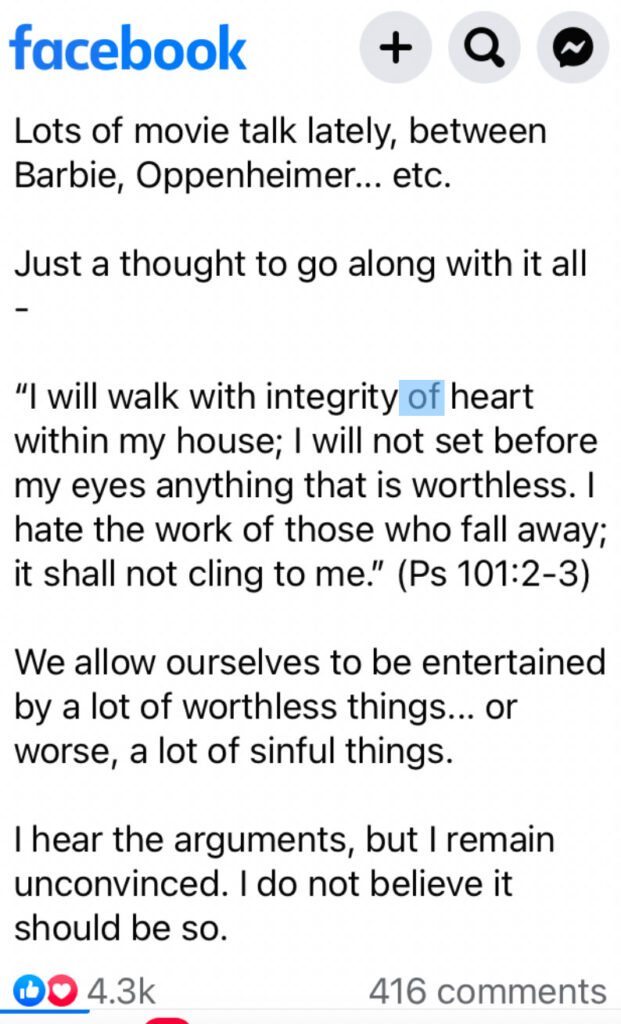An Obadiah Slope column
My best read: “Community is like a large mosaic. Each little piece seems so insignificant. One piece is bright red, another cold blue or dull green, another warm purple, another sharp yellow, an-
other shining gold. Some look precious, others ordinary. Some look valuable, others worthless. Some look gaudy, others delicate. As individual stones, we can do little with them except compare them and judge their beauty and value. When, however, all these little stones are brought together in one big mo-
saic portraying the face of Christ, who would ever question the importance of any one of them? If one of them, even the least spectacular one, is missing, the face is incomplete. Together in the one mosaic, each little stone is indispensable and makes a unique contribution to the glory of God. That’s community, a fellowship of little people who together make God visible in the world.
“Lifting our lives to others happens every time we speak or act in ways that make our lives lives for others. When we are fully able to embrace our own lives, we discover that what we
claim we also want to proclaim. A life well held is indeed a life for others. We stop wondering whether our life is better or worse than others and start seeing clearly that when we live our life for others, we not only claim our individuality but also proclaim our unique place in the mosaic of the human family.”
Henri Nouwen, Can You Drink the Cup?, p58 Ave Maria Press 1996.
###
The answerer: Martyn Iles retains a strong presence on social media as he begins his life in the Answers in Genesis organisation. Here’s his Facebook answer to the burning Barbiheimer issue: is Barbie or Oppenheimer the better/more significant/funniest/most worthy movie? His answer? None of the above.

Once upon a time, most evangelicals or Pentecostals would have thought the same – that the theatre/movies/tv was not required. Obadiah has only watched one of these movies, the longer one. It is hard to enjoy a movie about 230,000 deaths, but he found it engrossing.
###
I need to leave Tasmania: “You need a lifeboat,” a response to a chaplain, clearly fed up with life in the Anglican Diocese of Tasmania, explaining on Facebook that she feels stifled in an evangelical diocese. Obadiah wonders if one comment by a leading progressive Anglican, “You need a lifeboat,” was slightly tongue-in-cheek or somewhat wry, reflecting on what conservative Anglicans have provided for evangelicals who have found life in progressive diocese stifling also – the lifeboat of a breakaway diocese The Diocese of the Southern Cross. “Plant a progressive Anglican Church” was another response.
At the risk of having too many clichés in this par, Obadiah does think, “What’s sauce for the goose is sauce for the gander.” So why shouldn’t the progressives plant a church.? It’s happened in Sydney, so why not Tassie? And in writing down this thought, Obadiah does not mean to diminish the pain of progressives in a conservative church network or those trapped the other way around. It can be excruciating either way.
###
David Brooks, author of The Second Mountain: The Search for a Moral Life – essentially a conversion testimony and New York Times columnist*, is Obadiah’s second favourite opinion columnist. Here’s a part of a recent thought-provoking column called “What if We’re the Bad Guys Here?”
His thesis is the well-educated class is good at building systems to favour themselves. “The most important of those systems is the modern meritocracy. We built an entire social order that sorts and excludes people on the basis of the quality that we possess most: academic achievement. Highly educated parents go to elite schools, marry each other, work at high-paying professional jobs and pour enormous resources into our children, who get into the same elite schools, marry each other and pass their exclusive class privileges down from generation to generation.
“Daniel Markovits summarized years of research in his book “The Meritocracy Trap”: “Today, middle-class children lose out to the rich children at school, and middle-class adults lose out to elite graduates at work. Meritocracy blocks the middle class from opportunity. Then it blames those who lose a competition for income and status that, even when everyone plays by the rules, only the rich can win.”
And in this fact-laden piece, he also writes: “We also change the moral norms in ways that suit ourselves, never mind the cost to others. For example, there used to be a norm that discouraged people from having children outside marriage, but that got washed away during our period of cultural dominance as we eroded norms that seemed judgmental or that might inhibit individual freedom.
“After this social norm was eroded, a funny thing happened. Members of our class still overwhelmingly married and had children within wedlock. People without our resources, unsupported by social norms, were less able to do that. As Adrian Wooldridge points out in his magisterial 2021 book, ‘“’The Aristocracy of Talent,’ ‘ Sixty per cent of births to women with only a high school certificate, occur out of wedlock, compared with only 10 per cent to women with a university degree.’ That matters, he continues, because ‘the rate of single parenting is the most significant predictor of social immobility in the country.’”
*In an earlier version of this column, I had him mixed up with my favourite New York Times columnist David French.

